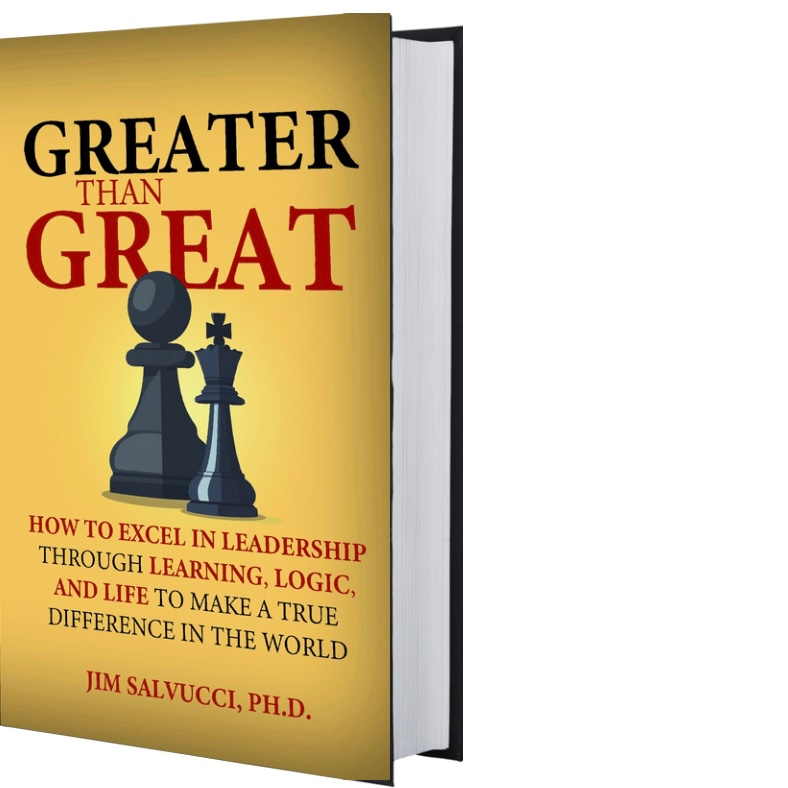It’s time I come clean. I’m always writing about integrity in some form or other, and I’m sincere in my desire to encourage the understanding and practice of integrity among leaders. Candidly, though, I rarely write about the downside of integrity: it can hurt.
Exercising integrity often means standing up and doing the right thing even when no one else will, and it can cost you. To compound matters, practicing integrity can come across as self-righteous, headstrong, and even arrogant although, ironically, the true practice of integrity is an act of humility and vulnerability. Once in a while, though, we’re lucky enough to witness a leader’s genuine integrity at work in a public setting.
After orbiting the sun for 100 years, former U.S. President Jimmy Carter finally came to rest. In his century of life, one Carter quality stands out to me: his relentless commitment to integrity in the face of resistance. While regarded as a mediocre president, his post-presidency is as notable for its considerable accomplishments as for its extraordinary length of 44 years. (Carter left office in 1981.)
Carter started his adulthood as a nuclear engineer and naval officer with the promise of a brilliant military career. Then his father died, placing the family peanut farm and his mother’s livelihood in peril. Carter abandoned his naval ambitions, and he and his wife, Rosalynn, gave up their dreams to return to Plains, Georgia, and run the farm—sort of a real-life George Bailey moment.
Upon becoming president, Carter put his farm under the control of a blind trust. He didn’t have to, but he thought his example would counter the rampant corruption of the Nixon years. Unfortunately, the trust mismanaged his farm, which forced him to sell his family’s heritage. He and Rosalynn lived out the rest of their days in their modest house, eschewing opportunities to make money in order to do as much good in the world as possible.
Whatever your thoughts about Carter’s politics or his presidency, you must admire his commitment to his values. For instance, he had promised to never lie to the people—a promise historians say he largely kept—perhaps to his political peril. For some perspective on the boldness of this choice, compare Carter’s impeccable honesty in the context of what came before him (Vietnam and Watergate) and what we deal with now (Pinocchio ratings and perpetual propaganda, misinformation, and gaslighting).
Predictably, Carter’s truth-telling was used against him, most notably with his infamous “malaise speech.” In it he challenged the national crisis of confidence by daring to call on ordinary Americans to strengthen their resolve, a call his political enemies maligned. But even that moniker, “malaise,” was a lie pushed by his adversaries and a complicit press; he never used that word and instead offered hope.
Carter may have been stubborn and righteous, but I detect no arrogance or cynicism. He was a humble man whose humility and optimism drove his behavior, bolstered by integrity.
Even in his post-presidency, instead of churning out self-serving and self-enriching books like so many of his fellow ex-presidents, he authored over 30 volumes on the state of the world, morality, aging, and religion. He even penned a children’s book. Carter built houses for the poor, traveled the world to promote justice and democracy, and practiced diplomacy. He could have retired in peace, but he dedicated himself to the cause of peace, winning the Nobel in 2002.
Leaders who practice integrity in the face of dysfunction and injustice will relate to Carter’s choices and recognize the price he paid. After all, integrity has no value until it withstands a challenge, and Carter’s most certainly did.
Just as Jimmy Carter chose honesty over political expediency, my friend, Carol, has habitually chosen integrity over professional self-preservation.
As a supervisor at a legal non-profit, she saw her first duty as serving her team so that they could best serve their mission and clients. Her boss, the head of the organization, saw things differently.
For the boss, leadership meant serving his ego even when their mission and clients suffered. His choices and behaviors undermined the smooth functioning of the dedicated staff.
Carol resisted, first by proactively trying to shape policy. When that effort proved limited, she focused on protecting her team members from the boss’s increasingly reckless and feckless behavior. Carol sought to maintain an environment where they could continue to perform their jobs. To that end, she served as a heat shield, protecting them from upper management.
Most employees elsewhere in the organization had no such protection from their supervisors, and consequently they rebelled by seeking to unionize. Naturally enough, the boss took it personally. After all, the unionizers were reacting to his abysmal mismanagement.
Instead of changing his ways, the boss turned his ire on a ready target, the supervisors, and Carol came in for particular scrutiny. Her great fault? Holding fast to her professional values, adhering to the organization’s mission, and leading a highly effective staff. In other words, serving as a leader.
The usual false accusations and half-truths ensued, accompanied by threats. Fortunately, an unexpected off-ramp emerged, and Carol left that untenable situation. She was lucky. I’ve been in similar binds myself with less immediate recourse.
Perhaps you’re wondering why, as someone who regularly encourages leaders to practice integrity, I would highlight the downside of that practice. It’s simple. My integrity demands that I be transparent. Also, logic dictates that the more awareness leaders have of such perils the better prepared they will be.
Think of Jimmy Carter. The easy path was dishonesty, but he practiced integrity at the cost of his ambitions and reputation, which only strengthened his resolve. The same with my friend, Carol. She had ample opportunity to knuckle under as had so many of her colleagues, but she stuck to her values by protecting her team members and their work from the boss’s ire. While she could not effect overall change from her position, her part made a difference for her team and their clients.
So, if integrity sounds like a bridge too far, a burden too heavy, consider the alternative. Compromising integrity means compromising your values, giving up a part of yourself. The more you do it, the weaker you get. Soon, your resistance evaporates along with your moral decency. In contrast, maintaining your integrity sustains you as a leader.
Granted, sometimes your integrity may put you in insurmountable danger. That’s when it’s best to move on, as Carol did. The key is to not abandon your values for the promise of a little security.
Practicing integrity in the face of challenges requires boldness and grit. That’s the bad news. The good news is that the more leaders maintain their integrity under pressure, the stronger it gets. Furthermore, sustaining your integrity in the face of challenges inspires others to do the same. It can change the world.
If that sounds naive, again consider the alternative. Abandoning your integrity is terminal. Conversely, upholding your integrity amidst the onslaught of challenges and temptations strengthens it and helps you thrive as a leader. For true leaders, integrity is not just a nice thing to have. It’s a necessity.
How would you describe your commitment to integrity? Has your integrity ever been truly tested?
Great leaders need to understand and prepare for the price of exercising integrity, and I can help.
Unlock the Great Leader Within! Download my free resource, the Transform To GREATness Toolkit, now!
I look forward to hearing from you.
Intro and outro podcast theme music by LiteSaturation from Pixabay.
Have you noticed that my podcast sound has improved in recent months?I started using Descript to record and edit my podcast, and—if you record sound and video—so should you. Descript’s AI assistance has transformed my process and improved my recordings. Now editing is a breeze!Interested? Use my affiliate link to try Descript for free: https://get.descript.com/t8zotbxmi6ds.Let me know if you try it out and what you think.
Need a speaker or a podcast guest? Invite me!
Need an engaging and experienced speaker for your event? Check out my Speaker’s Page.
Looking for a dynamic and insightful podcast guest? Check out my Podcast Guest Page.
I’m Dr. Jim Salvucci, an author, keynote speaker, coach, and consultant. I served higher education for 30 years as an English professor, dean, and vice president before founding Guidance for Greatness to guide young bosses to become the next generation of great leaders. I’m a certified Tiny Habits coach as well as a certified Thrive Global coach and life coach and hold leadership certificates from Harvard University and the American Council on Education in addition to my Ph.D. from the University of Toronto. Central to my leadership philosophy is that all great leaders are decent humans as well as great teachers, guiding their people and their organizations through values toward success. My goal is to guide today’s young leaders to become the next generation of great leaders by offering practical strategies on values-driven leadership.
Look for my new book, Greater than Great: How to Excel in Leadership through Learning, Logic, and Life to Make a True Difference in the World, in early 2025!


















Share this post